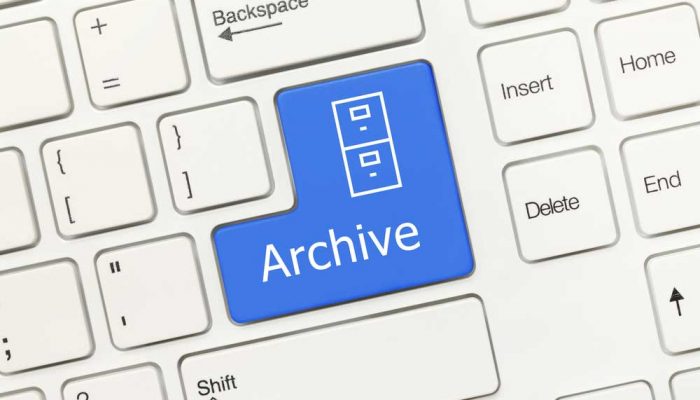Learn about the benefits of constructing a multi-year internship from a MLIS student's perspective.

Time-bombs, Technology and Training
The Challenges of Managing Archival Material in Small Public Libraries
From time to time libraries are faced with the challenge of accepting material that may have historical value. To a casual reader the phrase, ‘challenge of receiving material that may have historical value’ could seem odd; after all institutions of information have ample resources and expertise to preserve history, don’t they? The simple answer is yes, but as a wise man once said:
“Behind everything simple is a huge tail of complicated.”
Pratchett. I Shall Wear Midnight. (2010)
And in this short article I will do my best to convey this tale [sic].
It all started with a box stashed under a table in the technical services office. It contained some cotton gloves, tissue paper, several polyurethane document sleeves and a binder with some letters and a manuscript. The manuscript was donated to the Cornwall Public Library in 2010 and had lain there for 5 years until I showed up on a one year contract as Digital Services Coordinator.
One of my main tasks in this position is to implement a digitization program. The simplest course of action should have been to digitize the material and hunt for the next collection. But here is where the complication comes in, digitization is not an activity of a library, per se, rather digitization is a process of an archive (sometimes a museum) to conserve and preserve recorded information.
A previous employee had good intentions when accepting the material and assembling these few mounting supplies but the fact of the matter is that the materials were at risk due to neglect. Or, in other words, what may be a former employee’s good intentions could become a future employee’s time-bomb.
I set about transforming a box of ‘stuff’ into a fond (def: “The entire body of records of an organization, family, or individual that have been created and accumulated as the result of an organic process reflecting the functions of the creator”). In doing so I created an archival exemplar in an effort to sensitize staff to the technology and training required to support archival material in the future.
I started by arranging the correspondence by date and housing them in archival sleeves in a three ring binder with slipcase. I did the same for the manuscript. I created a condition report for the materials and obtained a published version of the manuscript (in anticipation of further research). The new fond now sits in an office (much as before) though now it is stable, recognizable, and ordered. Theoretically digitization is the next step.
But before theory can meet practice there are a few caveats that should be taken into consideration; does the item warrant digitization, are there financial and technical resources available, and where do you store the physical objects after digitization?
As I write I am preparing to accept a much larger collection of photos and negatives from a local paper. Arranging and describing the collection will be hundreds of hours of work and require thousands of dollars in technical support. Once the collection is arranged it will be still more time before the collection makes it way to the public via digital repository.
And even as we in the here and now implement best practices to anticipate a powder keg there are also in a digital environment time-bombs. Or, as one journalist in The Atlantic wrote:
“You can’t count on the web, okay? It’s unstable. You have to know this.”
Lafrance. “Raiders of the Lost Web.” The Atlantic (October 2015)
So when digitization comes full circle the task of managing the analog falls naturally to libraries, archives and museums (which are already converging). Information professionals in these institutions must be nimble to handle the inevitable influx of historical records searching for a home while balancing dreams and dangers of the digital phantasmagoria we refer to as the internet.
R.A. Priddle is a bookbinder and a rare books/private collection librarian from Williamstown Ontario. He graduated with a MI from the University of Toronto and an MA in the History of Religion from the University of Ottawa in 2013. He is currently on a one year contract at the Cornwall Public Library to design a makerspace, implement a digitization program and raise the digital literacy of staff and patrons.


